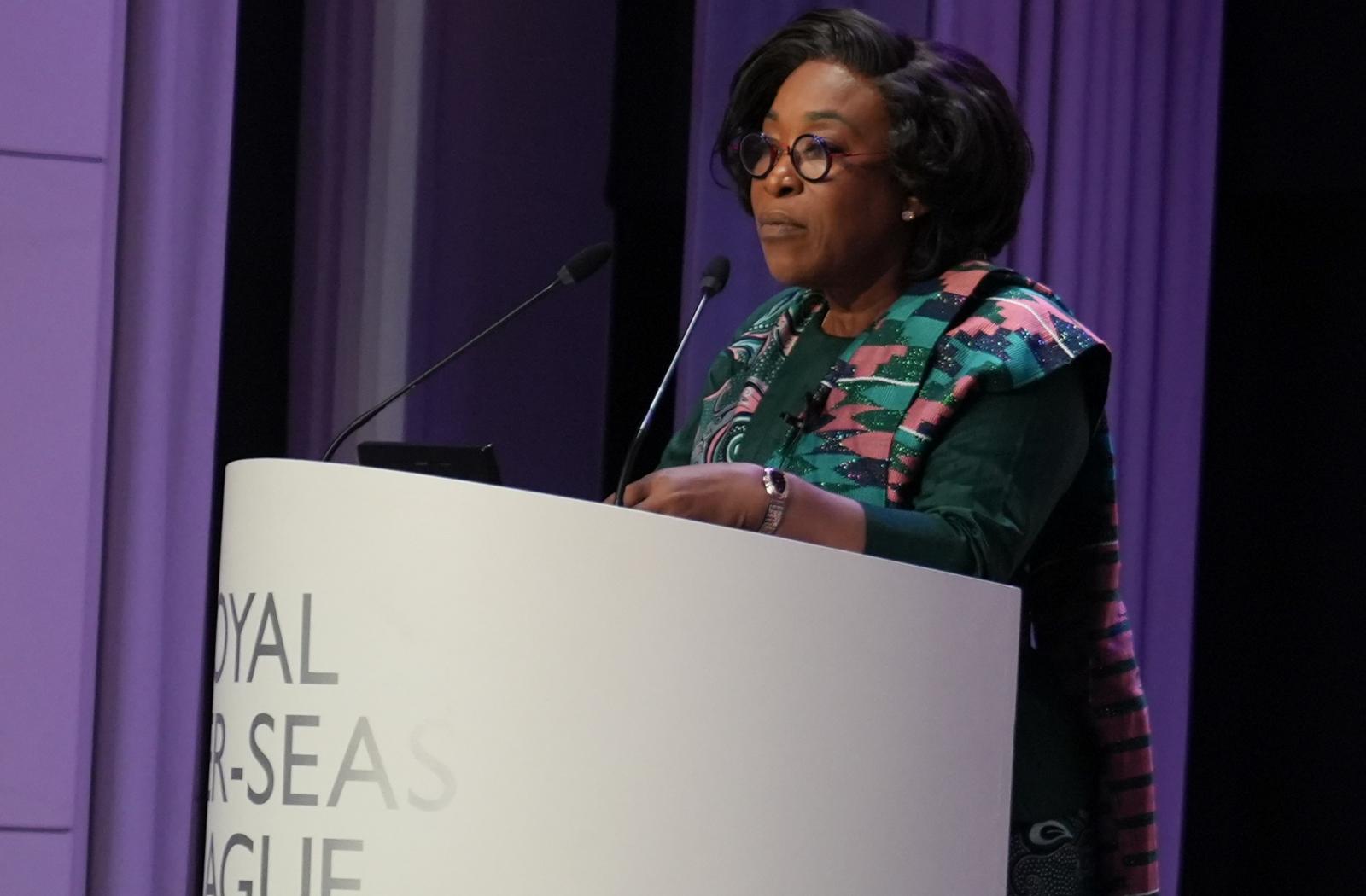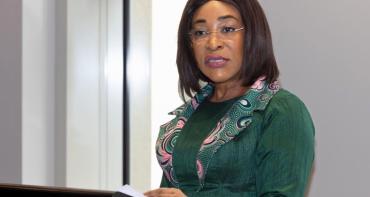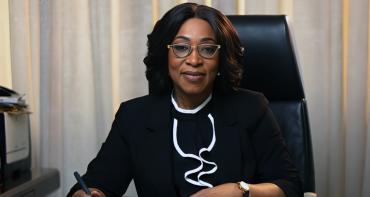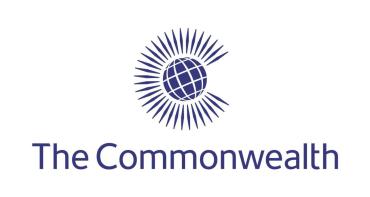The Commonwealth Secretary-General's address delivered at the Royal Over-Seas League (ROSL) Annual Lecture, on Wednesday 12 November 20205, at the Royal Over-Seas League (ROSL), London.

It is a privilege to be with you in this remarkable place — a place built not on power or profit fellowship.
For more than a century, the Royal Over-Seas League has been a quiet but constant thread in the Commonwealth story — a home for art, diplomacy, conversation, and human connection. In rooms like this, the Commonwealth has not been negotiated or theorised, but lived — through friendships that crossed oceans, through music and debate, through a belief that even in turbulent times, shared space and shared humanity matter.
Long before we spoke of “soft power” or “people-to-people cooperation”, ROSL exemplified both. And as we meet today — in a world more fractured, more anxious, and more uncertain than at any time in my memory — your mission feels not historic, but urgent.
Because today, the world is in one of those rare hinge moments when history does not move in gradual increments, but in jolts.
We are living through a convergence of crises. Wars in several regions are reshaping alliances and redrawing assumptions. The global economy is unsettled by spiralling debt, rising protectionism, and trade no longer seen as a shared endeavour but as a weapon.
Climate disasters are no longer emergency predictions — they are lived experiences, measured not in abstract degrees but in lives lost, harvests failed, nations drowned. Trust — that invisible architecture which sustains institutions, markets, and diplomacy — is eroding. Misinformation corrodes public confidence.
Multilateralism is under attack and questioned. And everywhere I go, from village halls to ministerial offices, there is an unspoken undercurrent: “the world no longer makes sense, and no one is in control.”
This is not just a turbulent time. It has compounded the global challenges that have stalled growth and undermined social mobility as well as social protection in both industrialised and developing countries. Last September, world leaders agreed to a Pact For the Future to address the challenges of a world that no longer responded to the expectations of the majority of people or the growing impacts of climate change.
And so the question we must ask — here, together — is not just what will happen to us? But what will we make happen?
When I became Secretary-General, I was under no illusion about the scale of the challenge. The Commonwealth remained rich in goodwill, but facing questions of purpose. Some asked whether it was still relevant. Others wondered whether a voluntary association, bound not by treaty but by trust, could matter in an age of transactional power.
And yet — I am more convinced today than on my very first day — that the Commonwealth has something rare and essential to offer our world. It is not a military alliance. It is not an economic bloc. It is something quieter. More human. It is a family of 56 nations — from the largest economies to the smallest islands — representing one-third of humanity.
It is a space where a minister from Malta, Malaysia, or Mozambique can sit as an equal with counterparts from India, Canada, or the United Kingdom. It is a home to 2.7 billion people — most of them young. It is law and language shared, yes — but it is also memory and moral purpose shared. And in a world where power is so often defined by the capacity to dominate, the Commonwealth draws its power from its capacity to convene, to listen, to act together. In a world where too many are choosing sides, the Commonwealth chooses solutions. And it has a history of exceptional successes, including ending apartheid in South Africa. That is essential in today’s times.
But business as usual is not enough.
If the Commonwealth is to matter, it must deliver.
If it is to endure, it must evolve.
That was the promise I made to Heads of Government, and to our Member States when I took office: that we would reform not for the sake of modernisation, but so we could transform Commonwealth countries and deliver the democratic dividend; that we would build a strategy not in London, but with Africa, Asia, the Caribbean, the Pacific, Europe and the Mediterranean together.
That is why our new Strategic Plan — which will guide us to 2030 — was not written for Member States, but with them. Over months, we consulted, debated, revised. And together, we agreed on a simple but powerful premise: in a world of disruption, the Commonwealth is needed more than ever — but we can only meet that need if we stay relevant, resilient, and results-focused.
The plan rests on three pillars:
Democratic resilience — because around the world we see democratic systems under strain. Trust is low. Institutions are vulnerable. Our mission is not just to defend democracy in name, but to make it real in people’s lives.
Understanding democratic fragility and using early warning mechanisms to improve governance responses and to facilitate accountability.
Economic resilience — because trade and investment must be tools of shared prosperity, not of exclusion. Trade within the Commonwealth is, on average, 21% cheaper because of our shared systems of trust, law, and language. That is the Commonwealth Advantage — and my aim is to turn it from an interesting statistic into tangible jobs, targeted investments for high impact, and transformation. It also includes coalescing on a Commonwealth agenda for debt and financing that factors in vulnerability, including climate impacts, instead of GDP, which has not been sustainable.
Climate and environmental resilience — because no Commonwealth value matters if your homeland is underwater or on fire. Small states — our moral compass — are on the frontline of a crisis they did not cause. They cannot face it alone. I am championing a renewable energy revolution to facilitate our transition to net zero and expand Commonwealth production and business.
Youth, gender, small island developing states and, the resilience of our people, are cross cutting issues. —. It is our youth who will inherit the Commonwealth. It is women who are the backbone of resilience in households and economies. And if they are not at the heart of our action, then our work is incomplete. At the heart of the youth agenda is expanding distance education for 10 million youth to acquire digital and entrepreneurial skills as well as to gain access to a fund for start ups.
This is not a Secretariat plan. It is everyone’s plan. Our Commonwealth plan. But a plan only matters if it is implemented. So what does this look like in practice?
It means reforming the Secretariat — not to make it bigger, but to make it sharper, faster, more focused.
It means better financial discipline, better delivery, and a culture of accountability.
It means repositioning the Commonwealth on trade — not as a commentator, but as a catalyst.
At the Trade & Investment Summit in London shortly after I took office, I made clear that we are putting trade at the heart of our mission:
breaking down barriers, reducing risk for investors, ensuring small states, landlocked countries, youth and women-owned businesses can compete and thrive.
It means climate leadership — not as victims pleading for justice, but as innovators designing solutions. From advocating for a universal definition of vulnerability, to pushing for accessible climate finance, to supporting small states transitioning to renewable energy — we must lead the conversation, not follow it.
It means defending democracy as public trust earned through service. It means strengthening election observation, supporting digital governance, sharing judicial expertise.
It means equipping our young people with skills: digital literacy, entrepreneurship, education that travels across borders. And it means something else: it means restoring faith in multilateralism — by proving it can work.
All of this takes us to the road ahead. To CHOGM 2026 in Antigua and Barbuda. Every Commonwealth Heads of Government Meeting reflects its moment in history. The next one will be a turning point.
In Antigua, our leaders will not gather merely to issue declarations — they will come to decide: what kind of Commonwealth do we want to be? And what kind of world do we want to help shape?
Our hosts have chosen a theme: “Accelerating Partnerships and Investment for a Prosperous Commonwealth.” It is exactly the right theme — because partnership is our method, and resilience is our mission.
My ambition is simple: that CHOGM 2026 must be a summit of delivery. That we leave St John’s with more than words — with decisions that citizens can feel in their daily lives.
That means reforming the CHOGM process itself — making meetings more interactive, sharper, more focused. Ensuring ministerial meetings produce outcomes that are based on data and evidence and geared to implementation, not filed away.Turning goodwill into tangible cooperation.
Ladies and gentlemen,
The Commonwealth has always worked best not when it is defensive, but when it is bold.
Bold in fighting apartheid.
Bold in championing small states.
Bold in giving voice to the vulnerable.
Today, we must be bold once more — to prove that cooperation can benefit both rich and poor and guarantee resilience and shared prosperity; that trust can be rebuilt; that institutions can adapt.
History will not judge us by the scale of the challenges we faced — but by the choices we made in response. So, while always measured, I choose courage over caution. I choose reform. And together, we choose the hard work of purposeful unity.
Because in a world where so much feels fragile — the Commonwealth, at its best, is a reminder of what endures: the instinct to listen rather than shout; to build rather than break; to serve rather than rule. And that brings me back to this room. Because long before the Commonwealth had charters and secretariats, it had places like ROSL — where human beings from different places could meet, talk, create, disagree, and still call each other friends.
That spirit — of civility, of curiosity, of common purpose — is the foundation on which everything else must stand.
So as we look to CHOGM 2026, and beyond it, I carry with me the quiet conviction that the Commonwealth will do more than survive history — we can shape it. Not with armies or empires. But with something far more powerful: with shared values, common purpose, and joint action. And an extraordinary potential, held in the ingenuity and imagination of a third of the world’s population, which is more than equal to the challenges we face.
We cannot choose the turbulence of our times. But we can choose the purpose with which we face it. And if this era is defined by division, then let the Commonwealth be defined by purpose.
Purpose in defending democracy.
Purpose in building prosperity.
Purpose in protecting our planet.
Purpose in serving our people.
Together — with humility and ambition — we can make this Commonwealth indispensable. A legacy, and a living force for good. That is a future worth working for.



